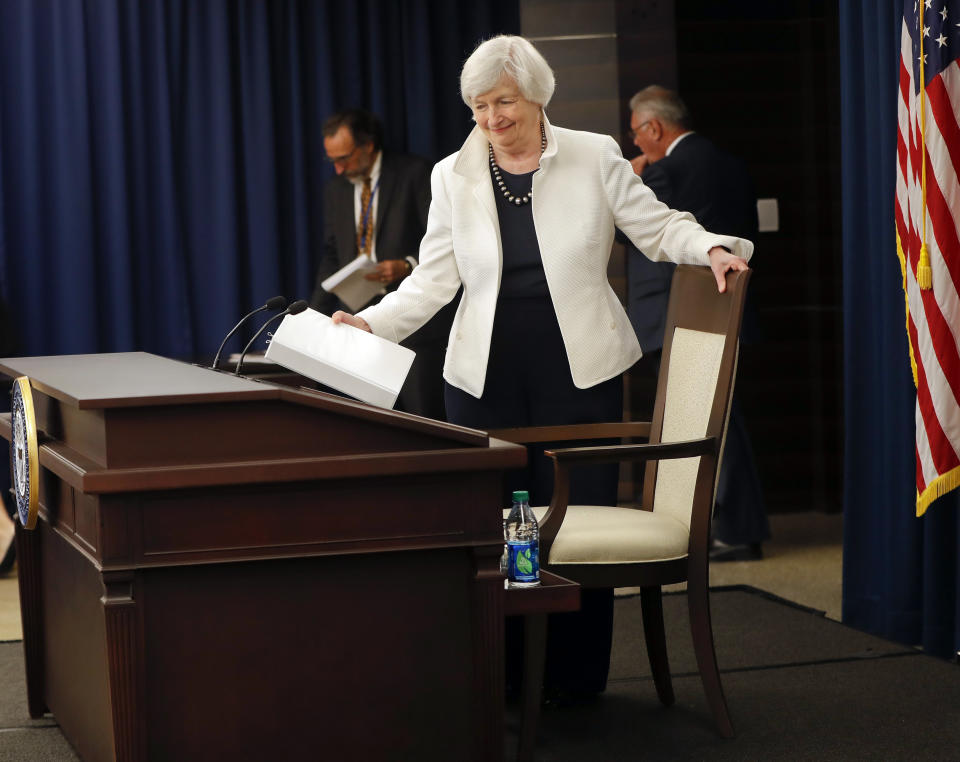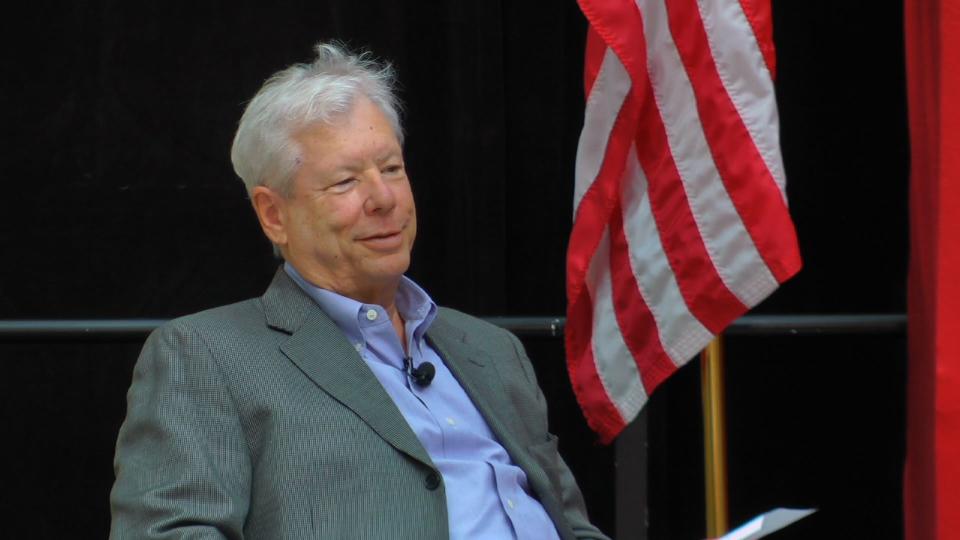JOLTS and Fed minutes — What you need to know in markets on Wednesday
Wednesday will be a day for Federal Reserve watchers.
In the morning, the latest report on job openings and labor turnover, also known as the JOLTS report, is set for release. This report is one of Fed Chair Janet Yellen’s favorite indicators for the labor market.
The report is expected to show that job openings in August remained near a record high for the series, which dates back to 2001. Economists have seen the high number of job openings as a sign of a tightening labor market as employers have a harder time filling open jobs. Another number to watch in this report will be the quits rate, which is a sign of worker confidence.
At 2 p.m. ET, the Federal Reserve will then release the minutes of its latest policy meeting, which will give markets more insight into the central bank’s thinking during its last meeting, at which it announced plans to begin paring down its $4.5 trillion balance sheet this month.

On the earnings side, Wednesday will feature results from BlackRock (BLK), the world’s largest asset manager in the morning.
A Nobel winner’s irrationality
On Monday, University of Chicago professor Richard Thaler was awarded the Sveriges Riksbank Prize in Economic Sciences in Memory of Alfred Nobel — better known as the Nobel Prize in Economics.
Thaler won the award for his “contributions to behavioral economics,” a field many now take for granted in economics and markets but was revelatory as Thaler rose through the academic ranks while the efficient market hypothesis dominated thinking in the field.
And yet irrationality, or rather questions about seeming irrational behavior, still puzzle Thaler despite having spent his life’s work trying to work out just why it seems humans do the things they do.
In an interview with Bloomberg on Tuesday, Thaler said of the stock market, “We seem to be living in the riskiest moment of our lives, and yet the stock market seems to be napping…I admit to not understanding it.”

On the one hand, Thaler’s entire field of study found that things in markets will happen that seem irrational, or at least inefficient, because humans are not always maximizing for utility as so many economists and market practitioners assume.
On the other hand, Thaler’s comments about how risky the times are is the sort of rationalizing people do to give themselves, and others, a sense of certainty about inherently uncertain times. It is always on some level the riskiest moment of our lives. We will never know the future, and we will only just barely understand the past once it’s gone.
The stock market perhaps appears to be napping because certain measures of volatility are low. Though as Thaler himself wrote in his 2015 book “Misbehaving,” research indicates that stock prices too much relative to the underlying changes in the present value of dividends (which is the simplest way to value the market as a whole).
Perhaps then the market’s inaction is a return to the fundamental recognition of what does and doesn’t make the stock market more valuable. This lack of volatility might then be a reflection of investors having internalized that price movements often make little sense — as Thaler’s work illuminated — and that doing less is really more.
—
Myles Udland is a writer at Yahoo Finance. Follow him on Twitter @MylesUdland
Read more from Myles here:

